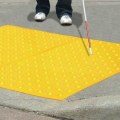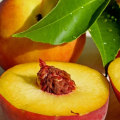Truncation error is the difference between the true (analytical) derivative of a function and its derivative obtained by numerical approximation. It is often used to calibrate truncation error in the life cycle assessment (LCA) process. Hybrid life cycle assessment (ACL) has a fuller system boundary than process ACL because it expands the system boundary by including previous flows that were previously missing. This is because many chemicals used in production processes are not captured well in the LCA background database of the process and must be complemented by input and output analysis in hybrid LCA. Truncation error is the difference between the true (analytical) derivative of a function and its derivative obtained by numerical approximation. It is often used to calibrate truncation error in the life cycle assessment (LCA) process. Hybrid life cycle assessment (ACL) has a fuller system boundary than process ACL because it expands the system boundary by including previous flows that were previously missing. This is because many chemicals used in production processes are not captured well in the LCA background database of the process and must be complemented by input and output analysis in hybrid LCA.
A high truncation error is an indicator that the original process LCA model is incomplete, encouraging the use of hybrid ACL to replace the process ACL when comparing different alternatives. Truncation error can be calculated using Taylor series expansion. The general form of truncation error is commonly used to control the accuracy of the integration. It can be measured by the difference between the first and second order solutions for ordinary differential equations (ODEs). The truncation error associated with the “predictor stage” and “corrective stage” of the “Milne-Hamming” method can be calculated using equations.
The truncation error of a numerical schema is a property of the method and is independent of how the analysis is done. In conclusion, truncation error is an important concept in scientific notation, life cycle assessment, and numerical analysis. It can be calculated using Taylor series expansion, equations, and other methods. It is important to understand how truncation error works in order to accurately compare different alternatives.











